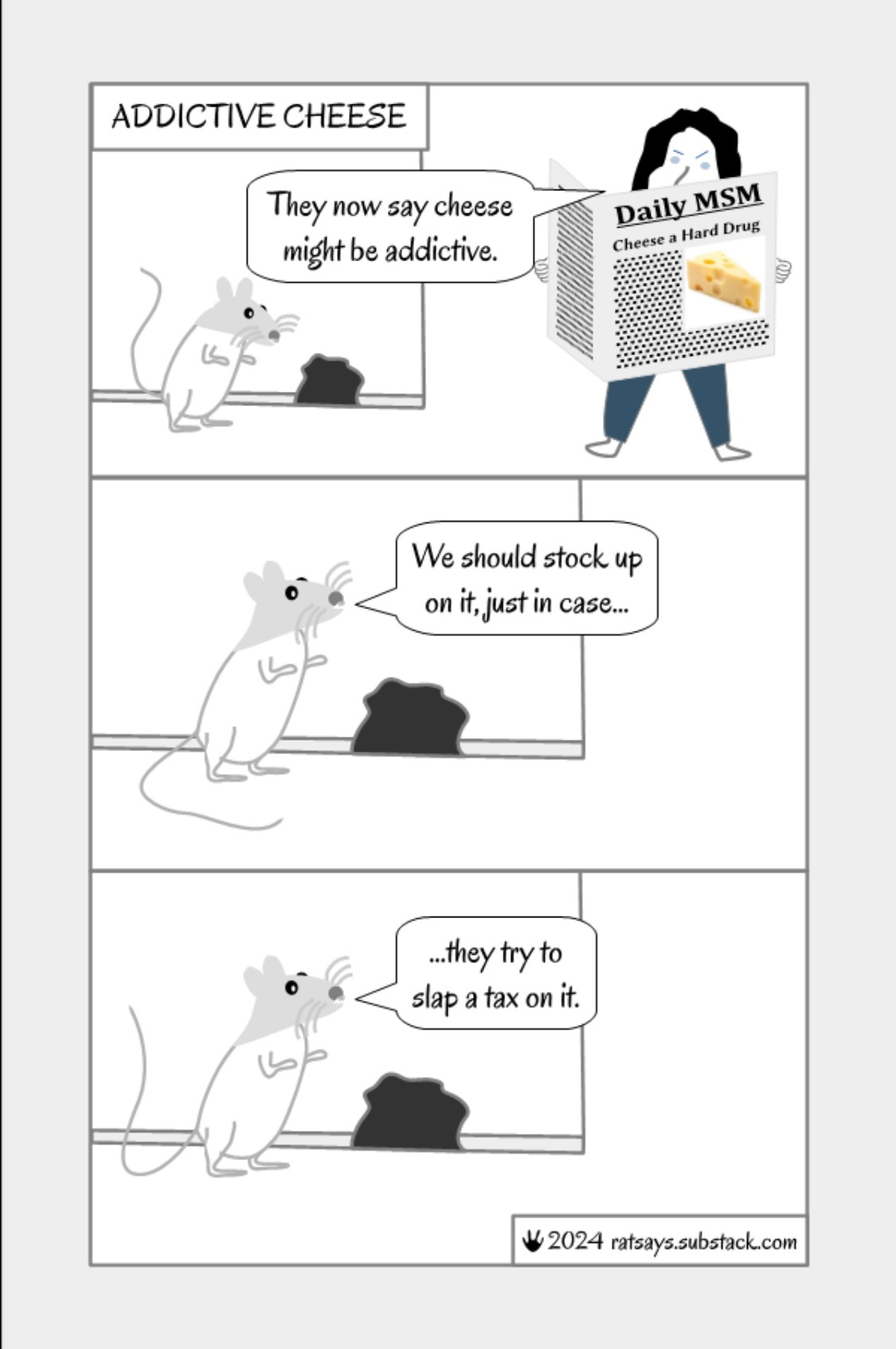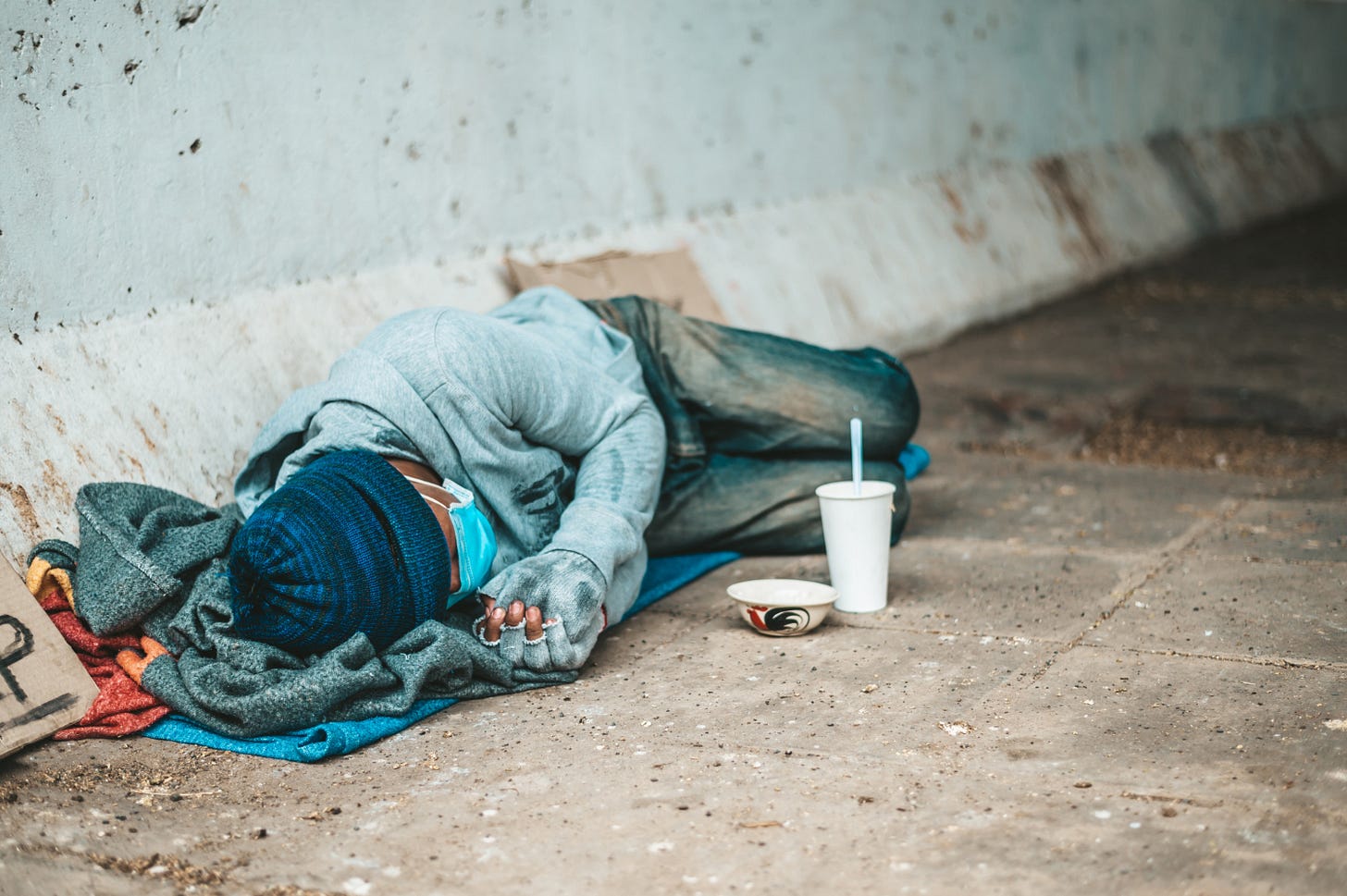It’s about want—not need.
What smart people get wrong about addiction and recovery
Hello friends and readers! This post has finally bubbled to the top of my consciousness based on many past conversations and several recent ones. I thought I’d opine based upon my experience and observations from decades of my own struggle with addictive behaviors—and my 14 plus years living a clean, sober, and self-examined life. I hope you take something useful away from this essay. By no means am I preaching here—well maybe I am a little bit—but mostly just sharing some opinions based on my own hard work trying to better understand my own journey as the writer of A Sober Mind.


There are millions of people who need to get sober. Those that do get sober and stay sober—in all the meaningful ways that being sober implies—are those that want to. They are willing to go to any length to change their behavior.
Read that again.
Think of times in your own life when you’ve known—or others have told you—that you need to change. How effective was that in and of itself? Likely not very. Millions of us need to do more or less of something in our lives—or engage in it differently—or change our relationship to:
exercise
rest
work
eating
love
Anger/other uncontrolled emotions
Caregiving/codependency
Time spent on social media
Divisive political engagement
and think.
Yes—think differently.
How many of us actually do it because we know we need to—or because someone close to us has told us we need to?
We make change in our lives because we want to.
Certainly that was my case. Multiple times over many years I was nudged—kicked—or—cried at— by many friends and loved ones—don’t you think this would be a good idea? Each time I’d have the same response. OK I’ll try that—for you. It never stuck. My heart wasn’t in it. All the pleadings and readings amounted to bupkis in the end. Sobriety stuck when I’d finally had enough.
In this context—substances are no different from anything else. Alcohol and drugs might have a particularly insidious way of destroying our lives in the short term—but are they any more destructive in the long term? Chemical substances might have a physiological dependence aspect to them that is more obvious when trying to quit them, but are they any more pernicious than the myriad of other things to which find ourselves addicted to?
Image courtesy of
Here are some recent comments I’ve heard and received from some really smart friends and colleagues as it relates to substance use disorder—addiction—recently.
I’m so grateful I don’t have that gene!
I’ve never struggled with addiction in my life—never had the problems that addicts have.
I thank the good Lord that I’ve never become dependent upon alcohol or drugs—I can’t imagine what that must be like.
Drugs and alcohol aren’t my thing. I can stop anytime I want to. I don’t get the whole thing about addiction.
I really hate the whole narrative about addiction and recovery. If you have a bad habit, just quit it. Use your willpower.
I’m too smart for that.
Really? With no judgment from me—have any of these smart, intellectually proud individuals ever struggled with trying to change something in their lives—and had that thing or behavior that they’re thinking about changing—perpetually elude them? I call bullshit on that—and on them.
These well-meaning folks are putting drugs and alcohol in a tidy little box that doesn’t apply to them. Fair enough. But while they occupy this moral high ground, they’re not allowing themselves to understand what the real underlying root of the issue is. People don’t fix something in their lives until the current pain of the situation becomes so great that it overshadows the fear and uncertainty of living on the other side of the thing. Without it. Or without as much of it.
Why can’t we fix the homeless problem? Because the vast majority of homeless individuals do not want to change their situation. They want to live on the streets where they live near their supplier—and among others like themselves. Throwing money and lodging at them—and moving them from this park to that underpass doesn’t solve anything—it temporarily addresses the symptoms of discomfort felt by the rest of the population.
Why can’t we fix the obesity problem? Because the vast majority of obese people don’t want to engage in the hard work associated with changing. It’s easier to take a pill, get a shot, tie off their stomachs, talk to their doctors. It is more comfortable to keep doing what they’re doing. They see everyone else around them doing exactly the same thing—so what’s the big deal?
Why can’t we fix the obviously cancerous problems of social media, political division, faddish social engineering trends? Because it’s easier to go along—to talk about the problems everyone else has—engage in the blame game—than is it to take on the difficult task of taking responsibility for our own behaviors and our own parts in the overall whole.
Oh those poor people—those addicts—who can’t deal with their shit. Our culture loves a good victim story—from a safe distance. I’ll never be like them—but I’m empathetic—here’s my donation.
What Addiction is not
Let me start this next section by saying: it’s not the alcohol. It’s also not the drugs. Are these substances incredibly addictive? Sure they are. More so than ever. I’m not minimizing their incredible power over our mind. Maybe the answer is to don’t ever start? More on that later. Tell that to someone who first discovers ice cream.
The cure for alcoholism or addiction is not the quit. The quit is merely the cover charge. The quit simply detoxifies the brain—clears the mind so that the real work can begin. The cure is to begin to recognize what it is that our mind is doing. Our mind is rarely our friend. My intellectual friends—especially the secular ones who do not belief in any power in the Universe greater than themselves—do not like this statement.
What do you mean my mind is not often my friend? My mind is what got me here. I am highly educated and informed and powerful.
You’re also kind of addicted to that idea.
Many people are addicted to their thoughts. They think therefore they do. Are you only your thoughts? Ever have bad ones? How about subconscious dreams that frighten you? Is that you or just a creation of your well-trained mind?
Our beliefs spring from our belief systems. Our beliefs are formed throughout our life. Our systems spring from a combination of our experiences—our environments—our peers—and our own minds attempting to make sense of the thoughts that arise from those belief systems. Our minds spit out thoughts many times a second—many are actually working against our best interests. We likely have exponentially more limiting beliefs than we do empowering beliefs.
My Dad used to say, Dee do you mean you can’t or you won’t? Bingo. He was just being a Dad. He didn’t understand that he was being a therapist at the same time.
Some things in life are truly beyond our reach—we simply cannot do them. But with the exception of a disability or the obvious physical things like not being able to run 100 meters in 9.3 seconds—or being able to throw a football 100 yards—or climb Everest without oxygen support—most scenarios where we think I can’t are synonymous with I won’t.
I can’t write. I can’t be successful. I can’t make a lot of money. I can’t stop working. I can’t find the right partner. I could never be this, that, or the other. I can’t quit. I can’t change. No you cannot—if you’re not willing to be someone different than the person who just presses the easy button and repeats.
Fault
It’s not the drugs fault. It’s not other people’s fault. It’s not society’s fault. It’s not your boss’s fault. It’s not your parents’ fault. They certainly can contribute to the way you think—but they’re not at fault. It’s not the fault of the booze—the dessert—the social media platform—the Republicans—the Democrats—the other guy or girl. When those external targets become too much or too little or to blame—they are symptomatic of something going on in your mind—in your way of thinking. They are symptoms of discomfort of some kind. I don’t feel good. What’s my mind’s response? Find my go-to coping mechanism and take it—drink it—snort it—eat it—say it—scream it—cry it—write it. We all have them—those go-to coping mechanisms.
What Addiction is
So if it is all about our thoughts, then what to do?
Some people indeed do have a predilection to do things to an extreme. The layman terms for this are many. Addictive personality. Adrenaline junkie. And others. Many adventure athletes or high-risk professionals such as wingsuit pilots, base jumpers, race car drivers, combat soldiers, or extreme skiers will say that they understand the extreme risk associated with their chosen pursuit—that they’re highly trained and they’ve taken appropriate safety measures—and that if the behavior kills them then at least they’d die doing something they love. There’s no greater feeling that when I’m out on the edge—it’s when I feel most alive. Of course! It’s when the reward center in their brain is firing on all cylinders. Do you suppose that those people as children decided they would risk their lives when they grew up? Or did they simply try something and discover that it so lit up their brain’s reward center that they were drawn back to it time and again despite the risk?
What would you say if I told you that alcoholics and drug addicts in the early stages feel exactly the same way. Living out on the edge and cheating death gives them the same rush. That rebellious thrill—that sudden boost of liquid courage—takes them to a place they want to return to time and again.
Many A’s and A’s have told me of their first time drinking or using at a young age. A common theme is having found something that immediately relieved their social anxiety, their family discomfort, or the like. Personally I don’t remember the exact first time—but I do vividly recall that feeling. Some—like me—even loved to regularly supercharge the thrills of drinking with dangerous activities in combo. Sounded like a good idea at the time. Special breed of knucklehead I guess.
What type of person never seeks those coping mechanisms? Well-adjusted? Fearful? Perhaps. I don’t know many of those kinds of people. We all—each and every one of us—has some go-to coping mechanism to provide relief from discomfort. Some are healthier than others.
The stigma around alcoholism and drug addiction is perpetuated by this ignorance—that addicts have a particular type of brain chemistry that is different than everyone else. I suggest that this is not true. That—is not a popular opinion in the age of disease treatment and pharmaceutical intervention. But I’m a little old school about this. Really smart people will say, I don’t have that thing. OK. What else you got? How is it impacting your health, your work, your self-image, your relationships in a negative way?
I have worked with many individuals who are struggling to get free of alcohol or drugs. It is what we as sober warriors do. We fight alongside them until they can fight for themselves. Like most of us who have attempted to help others get clean and sober—I’ve witnessed an equal number of failures and successes. After the tears of guilt—the fear of loss of living without the thing—and the apologies for behavior that always come first—there is usually some sharing on my part of how I felt exactly how they felt at one time. Relating that I too felt all of the shame and the frustration and the bewilderment of why I was unable to bring myself to change my behavior. Then when emotions have settled to an even pitch—the first question I always ask is: do you want to try something different? Are you ready to not feel the way you feel right now anymore? If the answer is Yes—there’s a chance. If the answer is something to the effect of, well I need to in order to save my marriage—my job—to reduce my sentence—etc then they’re in for a larger dose of discomfort.
Recovery
What then is recovery if not the quitting?
Recovery only begins with the quit. The quit allows the frontal cortex to re-assume the position of control from the amygdala long enough to allow the person to soberly examine their own life. Recovery grows and morphs as you remain sober. Quitting is hard—recovery is hard work. Moderating rarely works. Many people trip and fall here. Recidivism happens when the work on the self stops.
I quit for six months so I can’t be an alcoholic. Not exactly. If you go back to moderate behavior with the same coping mechanism, you have interrupted yourself at the most important place. Why do you think most diets fail? Why do many homeless people placed in short-term, government-provided housing end up trashing the place and ending up back on the street. They didn’t want to undertake the long and hard process of changing their lives and their thinking—they may have temporarily changed the relationship to the thing—but they haven’t looked at why they need the thing in the first place.
Abstinence is easy only as it relates to the hard work of recovery.
One of the reasons why prohibition and the war on drugs has failed so miserably is that removing access to the supply only helps in the very short term. People will find a way to their coping mechanism of choice if they want to.
From a certain big book that has helped millions of alcoholics break free of the grip—but is actually a guidebook for an accountable way of living; if you have decided you want what we have and are willing to go to any length to get it, then you are ready to take certain steps.
We all need to change something. Maybe we’re addicted to it. For me—one of those changes was to get sober. There’s no shame in that.
We have to want to do the work to make the change stick. For me—that work continues. There’s real transformation and hope in that.









Dee. This is fantastic. I really needed this today. I have nine days today. I had 9.5 months and relapsed. Now, I have nine days! I'm back in NA and doing IOP. I'd rather stay sober than get sober again. I don't have another relapse/detox in me. I will revisit this essay again and again. Thank you.
Super powerful, Dee! I come across so many (well intentioned) people who just don't get how after 3 solid years of not drinking, I am still so focused on doing this work. My answer is always: it was never about the alcohol.
You nail it with this one. Thank you!